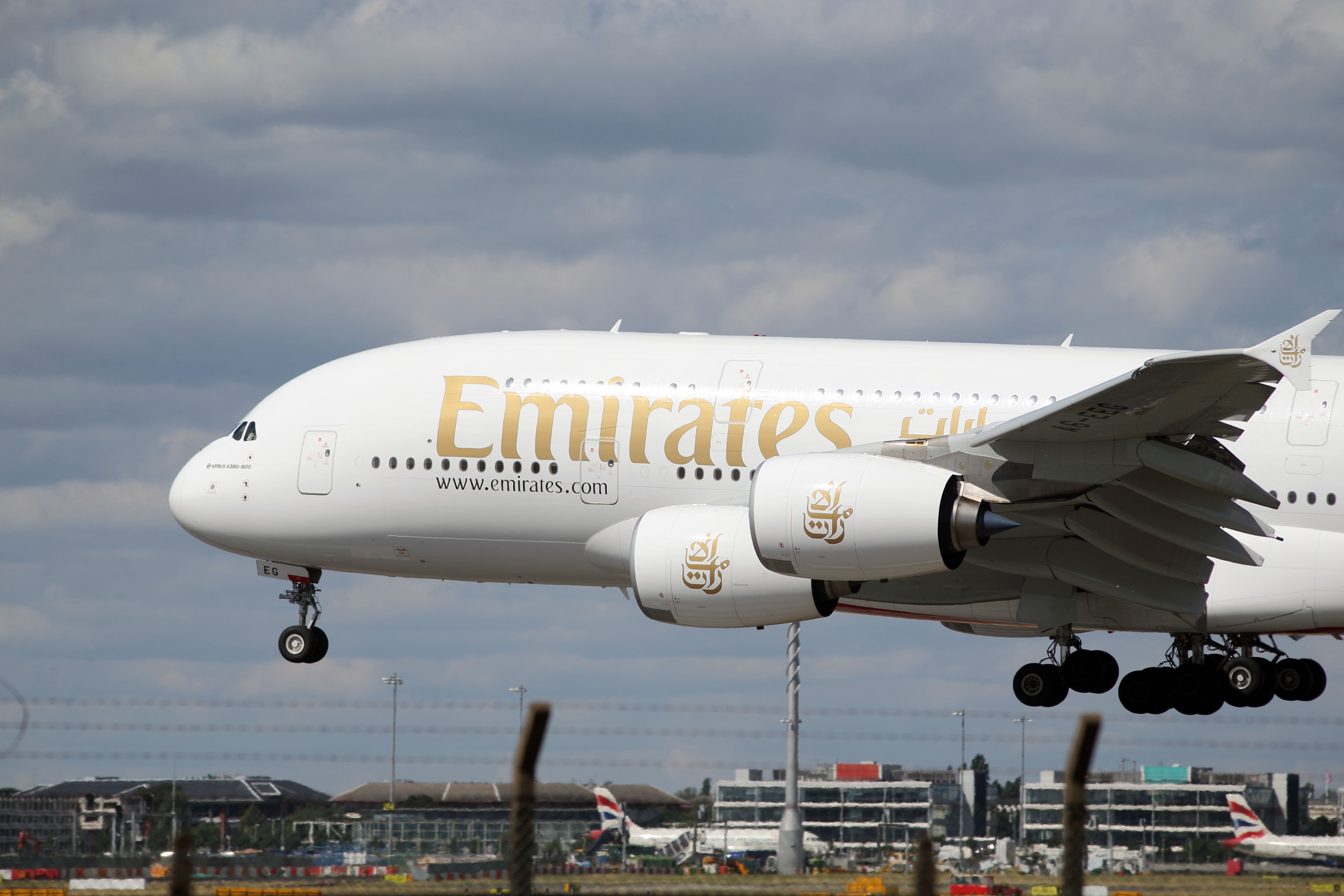Emirates’ UK boss ‘frustrated’ that UAE is still on red travel list
Richard Jewsbury said he hopes the UAE’s low rate of coronavirus cases and strong vaccination programme will see it removed from the high-risk tier.

Your support helps us to tell the story
From reproductive rights to climate change to Big Tech, The Independent is on the ground when the story is developing. Whether it's investigating the financials of Elon Musk's pro-Trump PAC or producing our latest documentary, 'The A Word', which shines a light on the American women fighting for reproductive rights, we know how important it is to parse out the facts from the messaging.
At such a critical moment in US history, we need reporters on the ground. Your donation allows us to keep sending journalists to speak to both sides of the story.
The Independent is trusted by Americans across the entire political spectrum. And unlike many other quality news outlets, we choose not to lock Americans out of our reporting and analysis with paywalls. We believe quality journalism should be available to everyone, paid for by those who can afford it.
Your support makes all the difference.The head of airline Emirates’ UK operations has expressed frustration that the United Arab Emirates (UAE) is still on the Government’s red travel list.
Divisional vice president Richard Jewsbury said he hopes the Gulf state’s low rate of coronavirus cases and strong vaccination programme will see it removed from the high-risk category soon.
People travelling from the UAE to the UK must enter a quarantine hotel for 11 nights at a cost of £1,750 for solo travellers due to the red list status, which has decimated passenger numbers.
We would hope to see some movement reflective of the state of play in the UAE
UAE flag carrier Emirates operated around 20 flights a day from the UK before the outbreak of the virus, but that has been cut by around 80%.
Mr Jewsbury told the PA news agency that “the data coming out of the UAE is very good”.
The weekly rate of coronavirus cases per 100,000 people in the UAE for the week ending July 22 was 124, compared with 417 in the UK, according to the European Centre for Disease Prevention and Control.
Meanwhile, some 69% of the population in the UAE are fully vaccinated, which is among the highest proportion of any country in the world.
The decision to keep the UAE on the red list despite those figures is “frustrating”, Mr Jewsbury said.
He insisted that Emirates will “respect the Government process” and “accept their sovereign right to do what they see fit”.
But he noted Germany’s decision to put the UAE on its low-risk travel list, which he claimed highlights “the more cautious approach” of the UK.
“All we can do is stay engaged and flag up the data and hope that it’s acted upon.”
The UAE – which includes the cities of Dubai and Abu Dhabi – was added to the red list in late January.
Its addition came shortly after Home Secretary Priti Patel hit out at UK influencers visiting the country during the ban on non-essential foreign travel, declaring that “going on holiday is not an exemption”.
The Department for Transport said at the time that the decision was due to the discovery of the coronavirus variant first identified in South Africa, which “may have spread to other countries” such as the UAE.
But in April, Transport Secretary Grant Shapps explained that the UAE is on the red list as it is a major transit hub, with many long-haul passengers taking connecting flights.
Mr Jewsbury said Dubai airport, where the airline is based, has good ventilation, touchless technology, and thermal scanners which can detect passengers who may be carrying the virus.
Emirates has modern aircraft which use HEPA filters to ensure “the air quality on board is very good”, while 95% of crew members are fully-vaccinated, he added.
The Government is due to update the self-isolation and testing rules under its traffic light system for foreign travel this week.
The lists themselves are generally updated every three weeks, meaning the next update is likely to happen next week.
Mr Jewsbury said: “It’s just a case of waiting for the UK authorities to shuffle the deck on the red, amber and green categories.
“The next change should be during the first half of August and we would hope to see some movement reflective of the state of play in the UAE and all the health and safety measures that have been put in place across the passenger journey.”